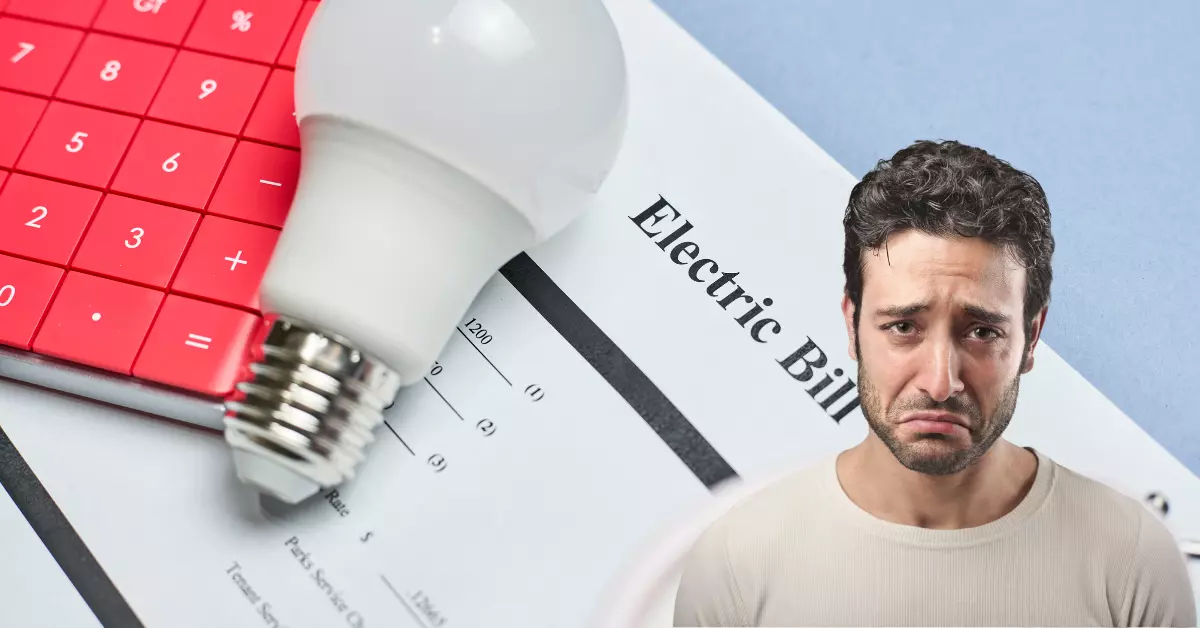What to Do If Tenant Doesn’t Pay Utilities? Rental Awareness
Dealing with tenants who don’t pay their utilities can be a frustrating experience for landlords.
It’s a situation that requires careful handling to protect your property and financial interests while also adhering to legal requirements.
In this comprehensive guide, we’ll explore the steps landlords can take when faced with tenants who fail to pay their utility bills.

Understanding the Lease Agreement
Importance of Clear Terms
The first step in addressing utility payment issues is understanding your lease agreement. A well-written lease should clearly outline who is responsible for which utilities.
Make sure your lease specifies which utilities the tenant is expected to pay. This typically includes electricity, gas, water, and sometimes internet or cable.
The lease should also detail the consequences of failing to pay utilities. This gives you a solid foundation for taking action if problems arise.
Reviewing Your Lease
Take time to review your current lease agreement. If utility responsibilities aren’t clearly defined, consider updating it for future tenants.
Look for clauses that address late payments or non-payment of utilities. These will be crucial if you need to take action against a non-paying tenant.
If your lease is vague on utility responsibilities, consult with a legal professional to strengthen it for the future.
Initial Steps When a Tenant Doesn’t Pay

Open Communication
When you first discover that a tenant hasn’t paid their utilities, start with open communication. Many issues can be resolved through a simple conversation.
Reach out to your tenant via phone or email. Ask if they’re aware of the unpaid bill and if there’s a reason for the delay.
Be polite but firm in your initial contact. Sometimes, tenants may have simply forgotten or encountered a temporary financial setback.
Documenting the Situation
Keep a record of all communications regarding the unpaid utilities. This documentation can be valuable if the situation escalates.
Note the dates of conversations, emails sent, and any promises made by the tenant to pay the bill. This creates a paper trail that can support your case if legal action becomes necessary.
If possible, get any agreements or payment plans in writing. This helps prevent misunderstandings and provides clear evidence of the tenant’s commitments.
Understanding Legal Implications
Landlord-Tenant Laws
Familiarize yourself with local and state landlord-tenant laws regarding utilities. These laws can vary significantly from one jurisdiction to another.
Some areas have specific regulations about how long utilities must remain on, even if bills aren’t paid. Understanding these laws helps you avoid legal pitfalls.
In some cases, landlords may be held responsible for ensuring that basic utilities remain functional, regardless of who is supposed to pay for them.
Utility Company Policies
Contact the utility companies to understand their policies on unpaid bills in rental properties. Some companies may have specific procedures for dealing with tenant non-payment.
Find out if the utility company will notify you if the tenant’s account becomes delinquent. This early warning can help you address the issue before it becomes more serious.
Ask about options for transferring the account back into your name if necessary. Understanding this process in advance can save time if you need to take over payments temporarily.
Offering Payment Plans

Flexible Solutions
If your tenant is experiencing temporary financial difficulties, consider offering a payment plan. This can help them catch up on bills without resorting to more drastic measures.
Discuss a realistic timeline for the tenant to pay off the overdue amount. This might involve spreading the payments over several months.
Be clear about the terms of the payment plan, including due dates and consequences for missing payments. Put this agreement in writing and have both parties sign it.
Monitoring Compliance
Once a payment plan is in place, monitor it closely to ensure the tenant is sticking to the agreed terms. This vigilance can prevent the situation from worsening.
Keep detailed records of payments made under the plan. This documentation is crucial if you need to take further action later.
If the tenant fails to comply with the payment plan, be prepared to move on to more serious measures. Consistent follow-through is key to resolving the issue.
Legal Notices and Warnings
Formal Written Notices
If initial communications and payment plans don’t resolve the issue, it’s time to escalate to formal written notices. These serve as official warnings and create a legal paper trail.
Send a “Pay or Quit” notice, which gives the tenant a specific timeframe (often 3-7 days) to pay the overdue utilities or vacate the property. The exact format and timeline for this notice can vary by location.
Ensure that your notice complies with all local legal requirements. Improper notices can weaken your position if you need to pursue eviction later.
Delivery of Notices
Proper delivery of these notices is crucial. Many jurisdictions have specific requirements for how legal notices must be served to tenants.
Common methods include hand-delivery, certified mail, or posting the notice on the door of the rental unit. Follow your local regulations precisely to ensure the notice is legally valid.
Keep proof of delivery, such as certified mail receipts or a witness statement if hand-delivered. This evidence can be important in court proceedings.
Taking Over Utility Payments
Temporary Measure
In some cases, you may need to temporarily take over utility payments to prevent service interruption. This is especially important if you’re responsible for maintaining habitable conditions.
Contact the utility companies to transfer the accounts into your name. Be prepared to pay any outstanding balances to keep services active.
Inform the tenant in writing that you’re taking over the utilities and that the costs will be added to their rent or pursued as a separate debt.
Recovering Costs
Keep detailed records of all payments you make on the tenant’s behalf. These costs can typically be recovered as additional rent or through small claims court.
Consider adding a clause to future leases that allows you to charge additional rent for any utilities you have to pay on the tenant’s behalf. This can simplify the recovery process.
Be aware that in some jurisdictions, there may be limits on how much you can charge tenants for utilities. Ensure your actions comply with local regulations.
Eviction Proceedings
Last Resort Option
Eviction should be considered a last resort, but it may become necessary if the tenant consistently fails to pay utilities and other attempts to resolve the issue have failed.
Review your lease agreement and local laws to ensure that unpaid utilities are grounds for eviction in your area. In some places, you may need to show that the non-payment constitutes a material breach of the lease.
Consult with a lawyer experienced in landlord-tenant law before proceeding with eviction. The process can be complex, and mistakes can be costly.
Legal Process
Follow the legal eviction process precisely. This typically involves serving proper notices, filing a complaint with the court, and attending a hearing.
Prepare all your documentation, including the lease agreement, records of unpaid utilities, communications with the tenant, and any payment plans or agreements made.
Be prepared for the tenant to contest the eviction. They may raise defenses or counterclaims, so having thorough documentation is crucial.
Post-Eviction Steps
If you succeed in evicting the tenant, you may still need to pursue them for unpaid utility bills. This might involve small claims court or hiring a collection agency.
After the eviction, conduct a thorough inspection of the property. Ensure all utilities are functioning properly and transfer them back into your name if necessary.
Consider updating your lease agreement and screening processes to help prevent similar issues with future tenants.
Preventive Measures for the Future
Thorough Tenant Screening
One of the best ways to avoid utility payment issues is to thoroughly screen potential tenants. This can help identify those who are more likely to pay their bills on time.
Check credit reports and rental history as part of your screening process. Look for any history of unpaid utilities or other financial red flags.
Consider requiring prospective tenants to provide proof of utility payments from their previous rentals. This can give you insight into their payment habits.
Clear Lease Terms
Ensure your lease agreement is clear and comprehensive regarding utility responsibilities. Spell out exactly which utilities the tenant is responsible for paying.
Include clauses that outline the consequences of failing to pay utilities, including potential eviction. Make sure tenants understand and agree to these terms before signing.
Consider having a lawyer review your lease agreement to ensure it’s legally sound and provides adequate protection against utility payment issues.
Regular Check-ins
Establish a system for regularly checking on utility payments, especially if the accounts are in the tenant’s name. This can help you catch problems early.
Some landlords require tenants to provide proof of utility payments along with their monthly rent. This can be an effective way to stay informed about the status of utility accounts.
If you notice a pattern of late payments, address it quickly with the tenant. Early intervention can often prevent more serious issues from developing.
Building Positive Tenant Relationships
Open Communication Channels
Fostering good relationships with your tenants can encourage them to be more forthcoming about financial difficulties. This can lead to earlier resolution of payment issues.
Encourage tenants to come to you if they’re having trouble paying bills. Being approachable can lead to more productive problem-solving.
Consider providing resources or information to tenants about energy-saving measures or assistance programs that might help them manage utility costs.
Education on Utility Management
Provide new tenants with information on typical utility costs for the property. This can help them budget appropriately and avoid unexpected high bills.
Offer tips on energy efficiency and water conservation. This not only helps tenants save money but also protects your property from excessive wear and tear on utility systems.
Consider installing energy-efficient appliances or fixtures in your rental properties. This can help keep utility costs manageable for tenants.
Final Thoughts
Dealing with tenants who don’t pay utilities requires a balanced approach of firmness and flexibility.
By understanding your legal rights and responsibilities, communicating clearly with tenants, and taking prompt action when issues arise, you can effectively manage this challenging situation.
Remember that prevention is often the best strategy. Thorough screening, clear lease agreements, and proactive property management can help you avoid many utility payment problems before they start.
While it’s important to protect your financial interests, also consider the human element in these situations.
Sometimes, tenants may be facing genuine hardships. Approaching the issue with empathy while still maintaining clear boundaries can lead to more positive outcomes for everyone involved.
By following the steps outlined in this guide and staying informed about local laws and regulations, you can navigate the complexities of tenant utility payments with confidence and professionalism.